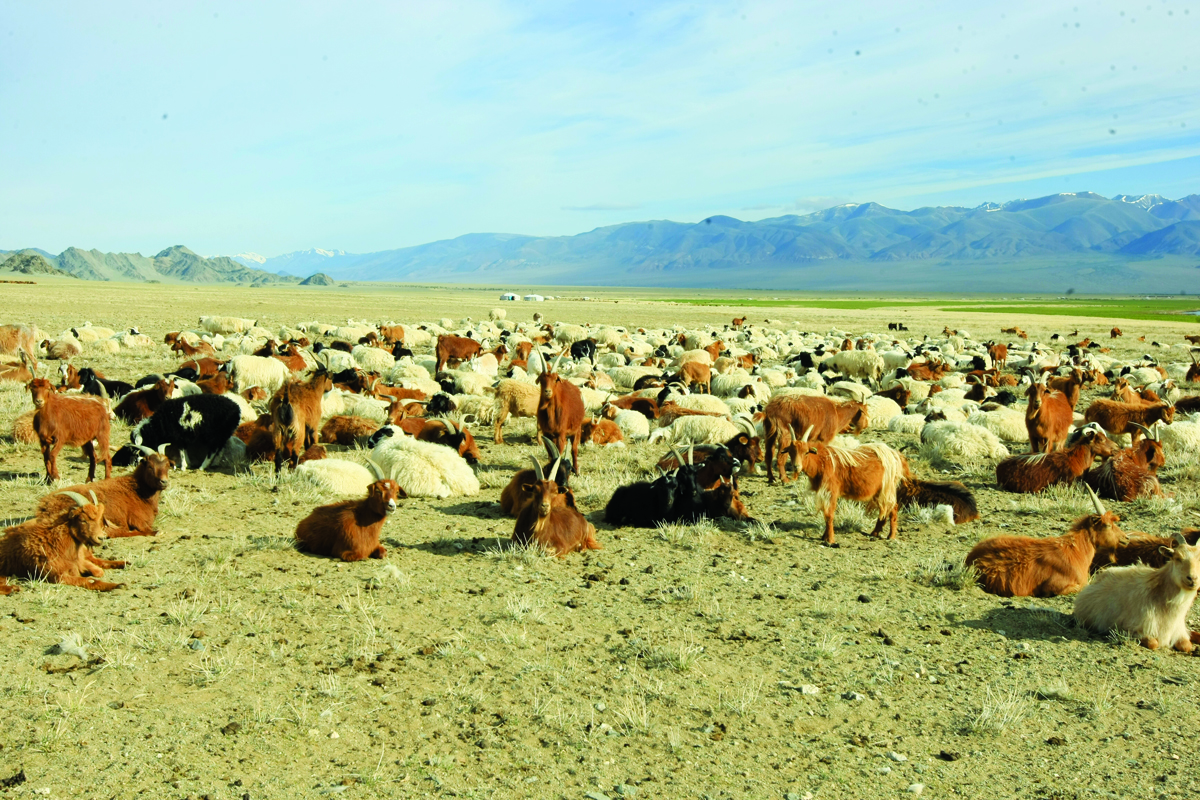Pillar of inclusive growth

The privatization of livestock animals set out the foundation of the co-existence of democracy and nomadic culture. A herder’s interest to raise livestock animals, capture the economic benefits and supply to both international and domestic markets can create a rich middle class with democratic values. But, it takes time to change the herder’s mindset. It is not an easy task to abandon two thousand years-long traditions of herding and the former socialist propagandas.
“In the past 30 years, the number of livestock reached 70 million, land degraded due to overgrazing, herders began spending much of their time herding, and livestock feed became a cost burden. Surprisingly, there are no tremendous differences between households with 3000 or 300 livestock in terms of quality of life.” said L.Odser, the head of the “Center for Nurturing Wealthy Middle-Class Herders”.
From 1990, while going through the difficult transitional years Mongolians have not experienced famine owing to animal husbandry. According to an official report, around 90 percent of total livestock was privatized by 1993. Since then, the number of livestock has grown steadily to over 30 million until 2000. It is crucial to point out that agriculture was the main economic sector for Mongolia up until 1995.
Even though there was a growth in the total agricultural output in 1999, the output shrank by 14-26 percent due to the consequences of severe winter conditions in 2000 and 2001. During that time, crop production got even worse. The crop production started falling from 1991 and reached its worst during 1993-1995. By 2000, crop farming painfully has turned into a sector for high risk-takers. Furthermore, a doctorate B.Erdenebolor mentioned that crop farming turned into the upper-class business because of a drought that continued from 2000 to 2002. He added, “In 2005, just over 70 thousand tons of harvest, the lowest harvest in the history of Mongolia, was collected. But again, farmers, around the world, lost their harvests due to a global drought during 2007-2008. It indeed added fuel to the fire. Mongolia heavily depends on wheat imports. Hence the flour and grain prices sharply increased in Mongolia as there was no wheat to import. It was a valuable lesson for Mongolia.” For this reason, the “Atar III” campaign was launched, and Crop Farming Support Fund was established. As a result, the Mongolian farmers finally satisfied the domestic need and introduced advanced agricultural technologies. It means that only 20 years later, agriculture was reformed.
Sadly, there was no reform in animal husbandry, a sector with a plentiful source. L.Odser stated, “It is possible to earn 1 billion USD as an income derived from sheep farming in a year. This income will directly go to herder’s pocket. In other words, it will not become government revenue and cannot be misappropriated by any officials. If the agricultural exports increase, a foreign currency reserve will be accumulated which will foster the Mongolian development further. On the other hand, a herder household will have a chance to earn 300 million MNT in a year by herding less than 1000 livestock. Therefore, we aim to change herder’s mindset so they start taking the market into account.”
Kh.Temuujin, the former Minister of Justice and Internal Affairs pointed out that “If herders have a steady income, it will solve a wide range of issues including poverty, land degradation, rural to urban migration, urban density, education, and healthcare. It will, certainly, improve the political system as well. The poor are more dependent on others, whereas the rich see the problem more clearly. The upper-class can stand by their opinion and will not sell their vote to greedy politicians. To win the upper-class vote, a candidate will have to act wisely and offer realistic policy options. It will further lead to a more competent and stronger government. The herders need to get rich sooner rather than later. A country that produces the healthiest food in the world can take over the market.”
Experts suggest that Mongolia should compete in the global market with high quality, expensive, organic products not with cheap mass-produced food. Thus, an effective measure is to initiate a “Wealthy Herders” project to provide support for the existing 169 thousand households that are capable of producing premium food. A doctorate B.Erdenebolor stressed that in the long run, whether we want it or not, we will have to integrate the crop and animal production to enable their harmonious coexistence.